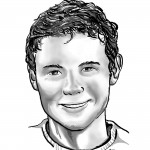A take-home final I took last semester was prefaced with this statement: “Thinking a bit about all of these questions … will help you in the long run, by further allowing this exam to serve some proper pedagogical function and be something more than a mere diagnostic tool for establishing grade.”
 The question of who makes a good and effective teacher tends to spark one of those vexingly endless debates that plays out like a Rorschach test, telling you more about people’s own priorities than any objective reality. The Yale version of this debate typically centers around a purported trade-off between professors’ research credentials and their teaching skills. This issue has lately been given particular attention with regard to some of our largest introductory lectures.
The question of who makes a good and effective teacher tends to spark one of those vexingly endless debates that plays out like a Rorschach test, telling you more about people’s own priorities than any objective reality. The Yale version of this debate typically centers around a purported trade-off between professors’ research credentials and their teaching skills. This issue has lately been given particular attention with regard to some of our largest introductory lectures.
New findings on precisely this question from the National Bureau of Economic Research — that show students in intro courses apparently learn more from non-tenure-track professors than tenure-track ones — notwithstanding, I’ve found in my three-and-a-half years at Yale that we have plenty of good and bad teachers. Many in both categories come from the ranks of our most famous scholars, our tenure-track professors, our lecturers and even our grad students.
Selecting “good” teachers is complicated by the fact that one student’s best professor is often another’s worst. Lecture or discussion-style, attention to detail and focus on the bigger picture — these are all prerogatives different professors will handle differently, to the satisfaction of some and the dismay of others.
But in spite of this frustrating lack of universal rules for good teaching, that sentence from my take-home exam stood out to me when I first read it. It continues to stand out to me today.
I’ve generally based my feelings about professors on how they conduct themselves in class. Do they help me to understand things I don’t? Do they make me think of new things? Can they lead a discussion? Are they interesting and charismatic?
These are important questions, and yet they relate only to one part of most classes. The other, arguably more important part of classes, involves the work we do on our own.
For the most part, I’ve taken this part of any class for granted. For my humanities classes, I will write papers; for other classes, I will complete problem sets and take tests. Some classes will mix and match between these approaches, but for the most part, any work I produce — and am evaluated on — will tend to fall into a relatively small number of established categories.
There are plenty of good reasons for some of our most common diagnostic tools. Problem sets force you to keep up with difficult material; tests, by limiting your time and access materials, are a great way of showing how well you’ve actually mastered material. Papers demonstrate an understanding of a subject and an ability to formulate a written argument about it.
For the most part, however, these reasons are all diagnostic. Most of our assignments force us to learn, so that we can show we have learned. But actually completing them does not usually teach us anything new, beyond the context of the specific material covered.
Many of my classes this year haven’t fit into this paradigm. Sometimes, I resented this — after all, shouldn’t a class about Shakespeare allow me to produce a paper with my own (very sophisticated and original) thoughts on Hamlet? But instead of getting those familiar lists of thematic prompts that most professors provide, I was being asked, surprisingly, to compare often minor differences between versions of texts or to do word-by-word autopsies of particular speeches (these are not the same things as close readings). In my economics senior seminar, I was asked to formulate my own economic model and devise a way of testing it that would work in the real world, challenging me theoretically and empirically in ways few undergraduate economics classes do.
These assignments were more than “a mere diagnostic tool.” In completing them, I was not only asked to consider new material. Indeed, the specific material being considered wasn’t always particularly new or interesting, but in being instructed to approach it in original ways, I learned far more than I would have from just another paper or problem set.
Papers, problem sets and exams are very good diagnostic tools; sometimes, especially the first few times you’re faced with them, they are also more than that. But professors often seem to consider this limited repertoire as exhaustive.
My advice to those seeking to improve their teaching is to look beyond the classroom. What are you asking your students to do on their own? Is your primary purpose in assigning work to see who deserves a good grade? What will students learn from doing the work you assign?
Harry Larson is a senior in Jonathan Edwards College. His columns run on alternate Tuesdays. Contact him at harry.larson@yale.edu .







